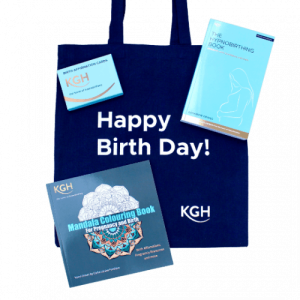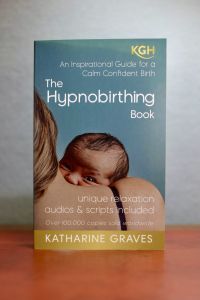Most fathers want to be at the birth of their baby nowadays, but what is the father’s role and how can he really help?
A hypnobirthing father who is well informed, knows what the mother is doing in terms of hypnobirthing, and has practised with her during pregnancy, is a huge asset in the birthing room. He is producing his own confident hormones, and the couple’s confidence and calm feed off each other.
A father who is frightened, doesn’t know what is going on, feels responsible for the situation, and stands there holding her hand and wishing he could help but not knowing what to do, could be a liability in the birthing room. He is producing fear hormones, and hormones affect other people in the environment. If someone is angry, don’t we tend to feel angry in return? If we are with someone who is frightened, don’t we tend to feel nervous too? If the mother feels nervous it can slow down labour and give her a more difficult experience. That’s the difference
Becoming a Father: Your Role
It is important that a mother is supported by the person that she feels most comfortable with in labour and this may or may not be the dad. Each couple needs to feel confident that what they are doing is right for them.
Fathers used to be marginalised and almost forgotten in pregnancy and birth, but their role is extremely important. That role is to protect mother and baby, and nature has been programming men for millennia to do just that. A mother knows exactly what to do to give birth and nurture her baby in the best possible way. Her brain may not know, but her much more powerful instinct does. Anybody who interferes with that process, including the father, is stepping out of line. To perform that role the very best, she needs protection so that the outside world, father included, does not disturb this miraculous process. This is where his role is essential.
A little while ago a father told me that he was at a party with his wife and, as they walked through the crowded room, he found himself putting his arm out in front of her so that no-one jostled the baby. Beautiful, instinctive protection.
Midwives are sometimes irritated by the fact that a father rings to call the midwife when his wife is in labour when they want to speak to the mother. Why does he do this? Because his instinct is prompting him to deal with the outside world on her behalf. When a midwife understands this, she realises how natural and right it is.
Working Together During Birth
Everyone knows that a mother’s hormones turn somersaults in pregnancy, and she can become weepy and emotional at any point. What many people don’t know is that a father’s hormones change too. About four to six weeks after a father learns there is a baby on the way his cortisol production increases. Cortisol is the stress hormone, so perhaps it is alerting him to the fact that he is on duty for protection.
About three weeks before the birth, the father’s level of testosterone drops by up to a third, perhaps programming him to gently respond to the care of mother and baby. His prolactin level also rises which may be nature’s way to increase his instinct to gently care.
The male hormones return to their pre-pregnancy level about six weeks after the birth. However a father that is closely involved in the care of a baby will also experience a rise in oxytocin, the hormone of love and calm, vasopressin, which is part of the bonding instinct, and prolactin which has a similar effect.
In advanced pregnancy, nature is programming a mother to go to a small safe place to have her baby. The last thing she wants to be doing is using the neocortex (the thinking frontal lobe of the brain), so she may want some assistance in communicating with her caregivers, so the father can play a useful role if she wants him to.
Advice to fathers? Don’t interfere with a mother’s instincts about how and where to give birth. She knows how to do it naturally and perfectly. Do protect her, so she feels safe to perform this instinctive function in the way nature has programmed her to do.
A mother and a father both have important roles in pregnancy and birth. Hers is to nurture. His is to protect.









